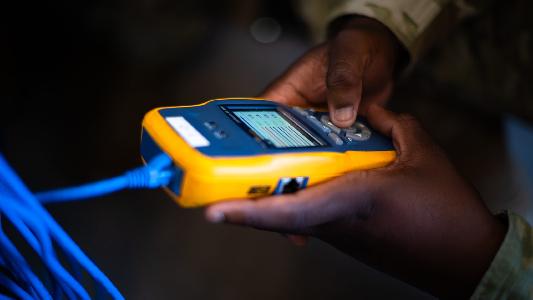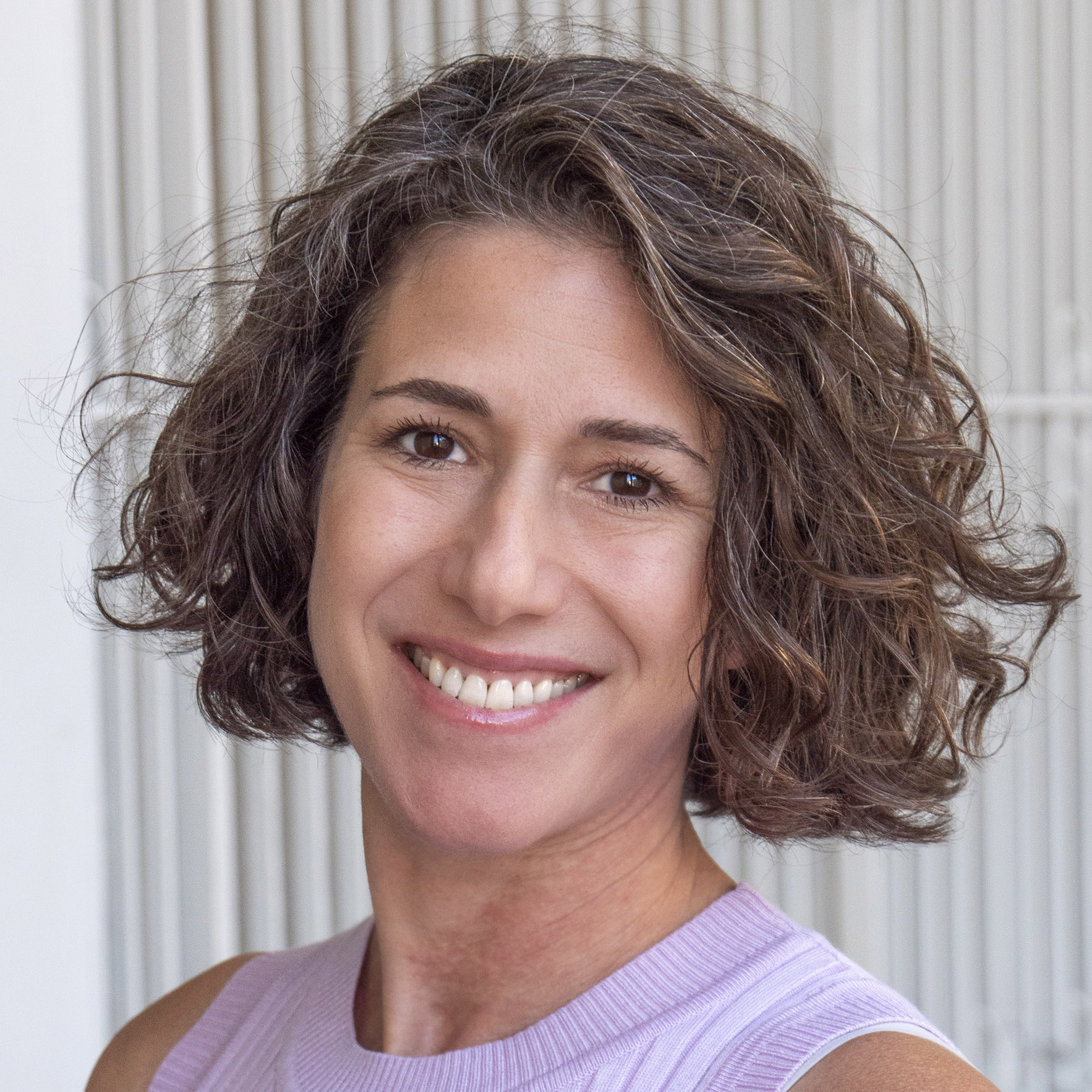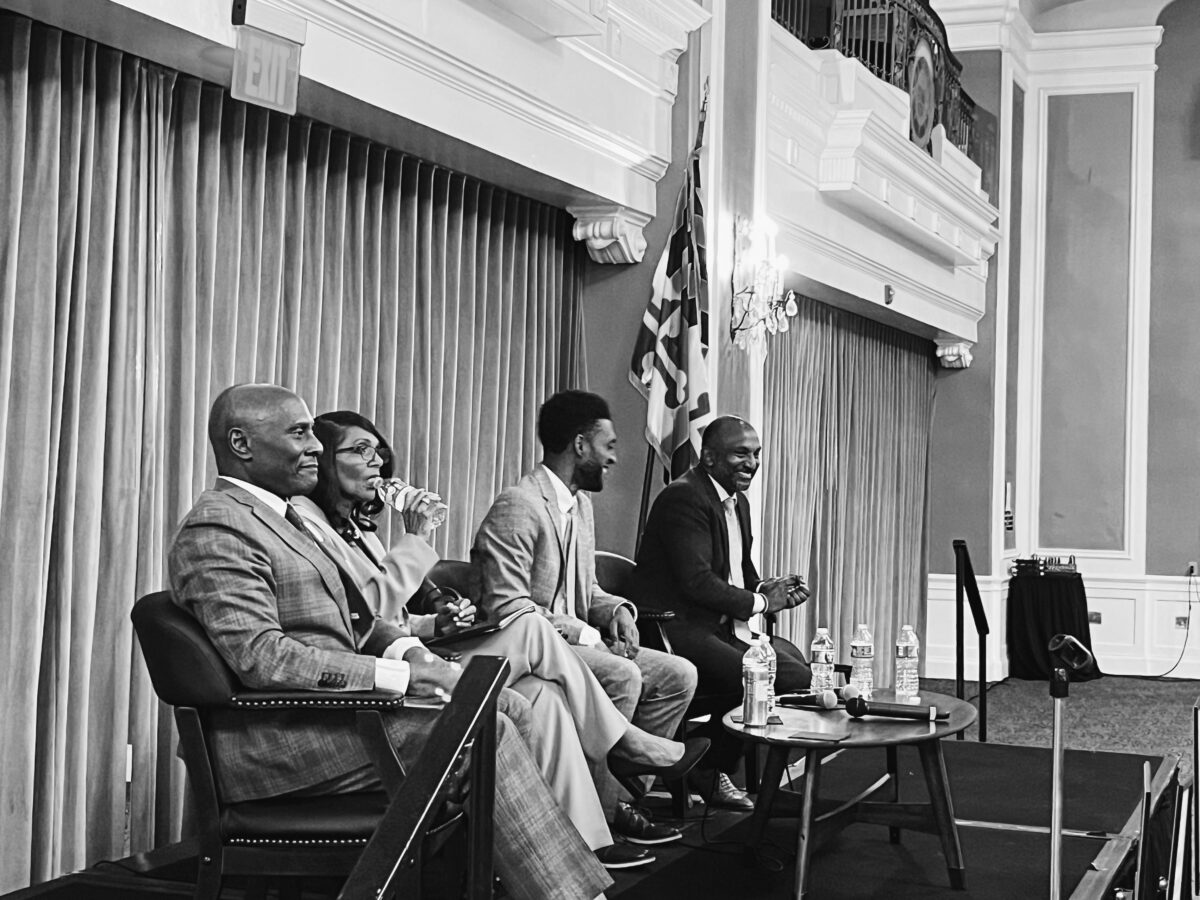At last Thursday’s candidates forum hosted by the Downtown Partnership of Baltimore at the Lord Baltimore hotel in the growing Downtown neighborhood, people vying for the Democratic nomination for mayor joined candidates for City Council president to answer questions from the community.
Topics varied from the scarcity of green spaces and recycling to the hurdles encountered by small business owners, and included discussion of workforce development and Baltimore’s place as a tech hub.
The evening started with audience members filing in past greeters in teal-colored shirts and BOOST program recipients like MRI Studios cofounder Tiffany Welch, who welcomed them to ride the elevator up to the hotel ballroom.
About 90 such attendees came to the historic building for the event. The ghosts of the hotel stayed silent, but community members raised numerous concerns.
After the council candidates answered questions, the mayor’s race took center stage. Seated in the spotlight were Sheila Dixon, a former Baltimore mayor who stepped down after being convicted of embezzlement; businessman Bob Wallace; incumbent first-term Mayor Brandon Scott; and Thiruvendran “Thiru” Vignarajah, a former deputy attorney general of Maryland.
Baltimore saw its first mayor elected in 1794, preceding the city’s official incorporation in 1797, a date commemorated on the city’s seal.
Since then, the mayoral office has played a large role in the city’s business development, from William Donald Schafer cutting the ribbon at Harborplace in 1970, to Stephanie Rawlings-Blake establishing a $1 million fund for small businesses during her tenure, and most recently, Scott’s launch of the Mayor’s Office of Small and Minority Business Advocacy & Development to foster opportunities for entrepreneurs from diverse backgrounds.
In a final rapid-fire round, the candidates had a choice of questions related to workforce, technology and the innovation economy. Here are the highlights.
Wallace: Map workforce development to the current skill set
Bry’an E. Azuekwu, president of the Pimlico Terrace Neighborhood Association, raised a question about Baltimore’s future competitiveness.
He highlighted concerns about outdated workforce development programs focusing on industries such as catering and trades like electricians and groundskeeping, while the tech sector is experiencing significant growth.
Wallace, who made his first bid for office in 2020, said programs should continue to train people for basic jobs they can handle right away, and worry about getting them into tech jobs after that.
“We look at these various industries that we map to the current skill set of the existing people who live in the villages,” said Wallace. “So we’re talking about light manufacturing, we’re talking about urban farming, we’re talking about fulfillment centers, places like that, that we could bring to the villages that map to the current skills of the workforce.
“And once we have those well-paying jobs,” he continued, “then we will upskill them to be players in the emerging economy.”
Scott: Investment in Baltimore as a ‘tech city’ should continue
The city’s current mayor also had an answer to Azuekwu’s questions about workforce development programs.
Scott, who said that for him the mayoral race is about building the best for all of Baltimore, shared some recent tech and apprenticeship-related milestones.
“We are a tech hub in the city of Baltimore,” said Scott, referencing not only the EDA Tech Hubs designation but other existing programs. “That means that we’re supporting those businesses that are growing, we have trained apprenticeships, not just with electricity, not just with people who are plumbers.
“We have to support all of those things,” he asserted. “It’s a tech city and that’s the investment that will continue.”
Vignarajah: Support small biz to develop ‘industries of the future’
An older white woman and Downtown resident stood to ask a question of the candidates about Harborplace being developed in what she described as a “backroom deal.”
Vignarajah, who said he doesn’t take money from corporations and lobbyists, answered with a statement of support for independent entrepreneurs.
“We don’t have to prioritize big developers over small businesses,” Vignarajah said. “We can decide cybersecurity and biotech, that psilocybin research and driverless vehicles are some of the industries of the future and start seeding small businesses to start.
“Because the reality is Google is not going to come here tomorrow,” he continued, “but small businesses will — and those are the kinds of investments that a leader who is trying to do this for everyone can do.”
Dixon: I was an ‘aggressive’ advocate for M/WBE businesses
Audience member Donna Stevenson, CEO and president of Early Morning Software, wanted to know what the candidates planned to do to support minority-owned businesses.
“It’s been difficult for me to be in business,” Stevenson said. “One of the most difficult experiences [is] in doing business with Baltimore City. So much so that I do more business outside of my city and outside of my state.”
Dixon chimed in to say she understands the situation and has been working toward fixing it, touting both her recent efforts and her time serving in office.
“I’ve been working with minority companies over the last 10 years,” said Dixon. She highlighted the cloud-based software app, Workday, as a pain point for business owners.
“When I was in public office, I think I was probably the most aggressive advocate for M/WBE,” she asserted. “We’ve worked with your company to make sure that you are able to get business in the city, but for two years during COVID I worked with Baltimore County. There was a commission created to revamp their procurement system.”
Before you go...
Please consider supporting Technical.ly to keep our independent journalism strong. Unlike most business-focused media outlets, we don’t have a paywall. Instead, we count on your personal and organizational support.
3 ways to support our work:- Contribute to the Journalism Fund. Charitable giving ensures our information remains free and accessible for residents to discover workforce programs and entrepreneurship pathways. This includes philanthropic grants and individual tax-deductible donations from readers like you.
- Use our Preferred Partners. Our directory of vetted providers offers high-quality recommendations for services our readers need, and each referral supports our journalism.
- Use our services. If you need entrepreneurs and tech leaders to buy your services, are seeking technologists to hire or want more professionals to know about your ecosystem, Technical.ly has the biggest and most engaged audience in the mid-Atlantic. We help companies tell their stories and answer big questions to meet and serve our community.
Join our growing Slack community
Join 5,000 tech professionals and entrepreneurs in our community Slack today!

The man charged in the UnitedHealthcare CEO shooting had a ton of tech connections

From rejection to innovation: How I built a tool to beat AI hiring algorithms at their own game

The US needs to train more cyber talent to keep the country secure




